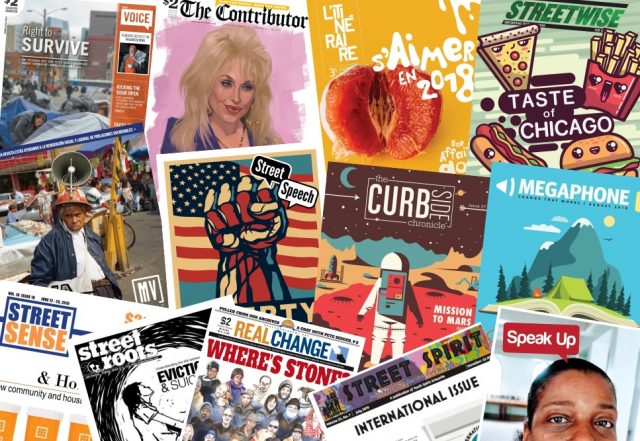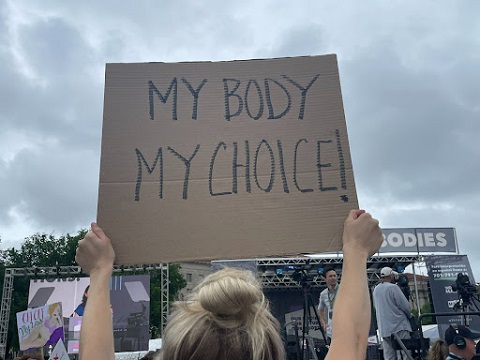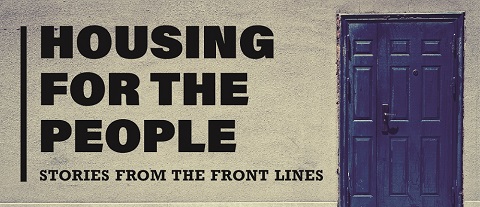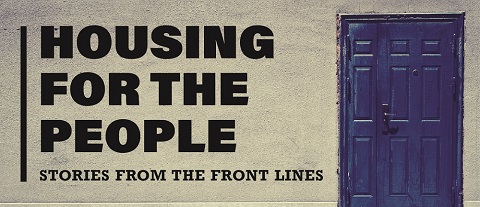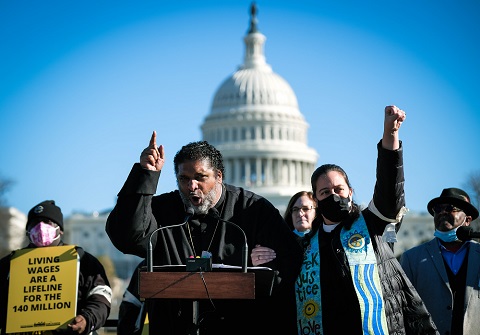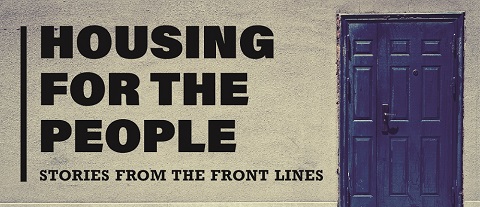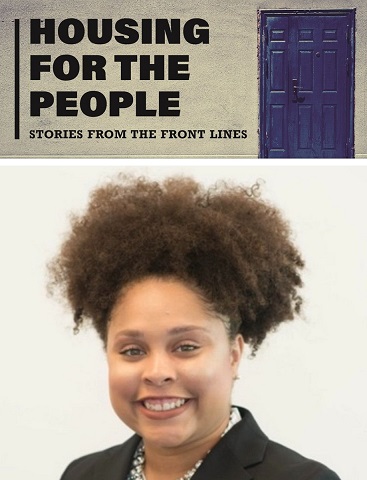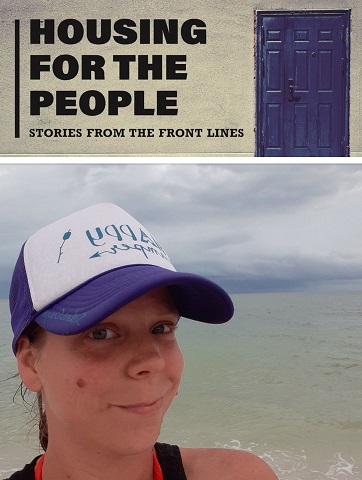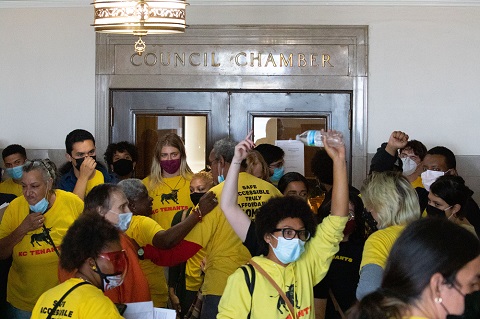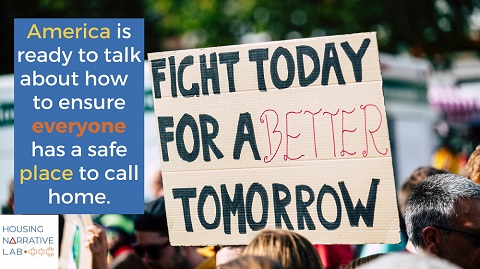In the O2 Academy – a 2,550-capacity venue in Glasgow that’s more used to hosting the likes of Kings of Leon or The White Stripes – two middle-aged guys in suits are doing the traditional sound check call. “One, two,” says Wisconsin attorney Dean Strang. “A,B,C…” recites his colleague Jerry Buting. It’s not a little surreal.
Later this evening, Strang and Buting will pack the venue to the rafters for their “long form conversation” about the issues raised in Netflix hit documentary Making a Murderer. Focusing on Manitowoc County man Steven Avery’s wrongful conviction for the sexual assault and attempted murder of Penny Beerntsen and his subsequent arrest and conviction for the murder of Teresa Halbach, the 10-part series is a damning reflection on the flaws of the US justice system and a powerful indictment of the role of class, power, poverty and educational opportunity on legal outcomes.

In an otherwise bleak tale, Strang and Buting are the sole chink of light. When Strang breaks down part way through the series, saying he almost wishes that Avery were guilty because otherwise the injustice he has faced is too unbearable, it is the most inspiring a lawyer has been since Atticus Finch’s closing speech in To Kill a Mockingbird. Both men’s passion for justice ignited a vast following of fans – enough to fill venues like this across the US and UK – and turned both into very unlikely pin-ups. In the immediate aftermath of the show’s release, Buting says his teenage daughter swore off social media because “everyone keeps talking about how hot Jerry Buting is”. Strang doesn’t do social media, but ‘Sexy Dean Strang’ has thousands of followers on Twitter.
Though perplexed at this “crazily improbable” turn of events, both are determined to use the publicity to open up a frank debate on the reality of human attempts to provide justice – in the US and further afield. Recognising the particular problems that street paper vendors – and others experiencing housing insecurity – face with the law, they were particularly keen to attack these issues with INSP. “I didn’t realise there was an international network before,” says Strang. “That’s amazing.” Speaking to our global readers, who care enough to buy their local street paper, is a good start. After all, they point out, criminal justice starts with social justice.
Why have you decided to take time away from your day job to go on tour?
Jerry Buting: After the documentary came out there were so many issues that it raised: unanswered questions not just about the case, but issues of justice. One of the things that we saw pretty quickly was that even though the media would interview us and ask questions about some of those issues, the reports that would end up on TV and in print would be fluff. They didn’t even scratch the surface. We talked it over and we thought it would be great if we could have a forum where we could bring in the public and have them ask us questions and have us talk about justice.
Dean Strang: A long-form conversation.
JB: Yes, a long-form conversation. And we did that – 90 minutes in Milwaukee. All of a sudden, all of these other cities said, hey, we’d like to do that too. It just sort of grew on its own, organically. Then some tour promoters came up with the idea of doing a longer term thing in America. And now we’ve been going foreign as well.

Do you feel like your discussions will have an impact, once people leave the theatre?
DS: I hope so, over the long term. I really do hope so. That’s the point – to foster dialogue about problems in the administration of justice that transcend one county or one time in the United States and, to a very large extent, transcend all national borders. Because no matter where on this Earth we are trying to administer justice, it’s human beings who are the entire composition of every institution of justice that any country has ever devised. So, many of the weaknesses or frailties of any system of justice are universal. Ultimately these things don’t change unless the public understands what the professionals on the inside are doing and what the risks for uncertainty or unreliability really are. Again, those risks tend to transcend national boundaries. They often concern class. Class gets linked to race and ethnicity. Poverty is linked to race and ethnicity. Or you’re a recent arrival as an immigrant. And certain mistakes the police officers make or their own cognitive biases that affect how they look at the world are not so different no matter where you are.
We’re hoping that members of the public who found themselves engaged by Serial the podcast, or by Making a Murderer or by The Jinx or by Paradise Lost or whatever these interesting and well-done true crime entrants to that genre are, we’re hoping that they’ll take that interest and challenge themselves to look beyond one case that happened at a distant time and place and to look at their own locale and to look to the future. We hope they’ll look at what they can do to get involved in advancing, not just criminal justice, but social justice.
“Many of the weaknesses or frailties of any system of justice are universal”
When you agreed to be filmed for Making a Murderer, you can’t have known how big the series would be. Would you have thought any differently about agreeing to be filmed, if you’d realised how much of an impact it would have on your lives?
DS: I wonder if it would have scared me off, at the time, had there been any way at all to anticipate this. I hope not, because – though unexpected and widely improbable – it’s been a great gift to be able to participate as a voice in this discussion.
JS: It’s a good question. And it’s a new question, actually. I don’t know. If I had’ve known that this impact would be there, I probably still would’ve done it. I mean, we’ve both done high profile cases before, where there’s been more local reaction. But this is different.
DS: For myself, I wonder, because I remember distinctly at the time, once we’d decided to cooperate with the filmmakers, thinking, ‘Ok, they’re bright and they’re hardworking but they are, after all, students. They are talking about making a documentary.’ I remember reassuring myself that if they sell their movie, it’ll be 110 minutes in a theatrical release in some arthouse in Greenwich Village and 17 people will ever see it. I remember telling myself that. Hahaha! I got that one wrong.
JS: At the most, we thought there might have been a DVD that was way down in the catalogue of mail-order through Netflix mailing or Blockbuster, or whatever it might be. There were really only a few documentaries like that at the time… and really only one that had given the defence perspective – a film called The Staircase that very few people have seen.

We heard in the programme about there being hundreds of thousands available for Avery’s defence. It sounds like a lot of money, but, as I understand it is actually not that lucrative to take on these sorts of cases. How hard do you have to think before taking on a job like that?
DS: There was enough money here that our partners were not going to banish us from our law firms. Was it going to be a loss on paper? Yes. Was it going to be a disastrous loss? No. It’s not just the short term economic decisions that govern whether you’re going to take a case like that. Part of it is, is the case compelling to me? Do I like the client? Do I think there’s a potential injustice that’s developing? It was a chance to work with Jerry Buting again. We had worked together before and that goes towards whether it will be a valuable experience.
In the long run, a case that gets heavy publicity can potentially advance a lawyer’s career. In the short term, it doesn’t necessarily mean you’ll get more work. But in the long run, if your colleagues generally think that you handled yourself well – win or lose – it can tend to burnish your reputation and lead to referrals over time. There’s also the wonderful ethic of our profession that says sometimes you do things for free or sometimes you take a loss, because it’s the right thing to do.
JS: And you have to think, it’s not just the economic cost of working on a case this big. They are just black holes for the rest of your practice. You get all-consumed in that. It also affects your family life and we knew that. All these things had to be sorted out before I agreed that I wanted to participate. I already had another big Innocence Project case going on already that I was doing pro bono.
DS: Yeah, and you had kids in high school.
You certainly both looked like you cared beyond the pay check, that there was an element of it being the right thing to do… Did it have a big impact on both of your lives at the time?
JB: No question. For two months we had an apartment that was two hours / an hour and a half from our homes. For most of the two months we were there, I would come home for less than 24 hours every weekend and that was it. I would try to get home for Saturday mornings when the kids were having their basketball games or whatever.

Brendan Dassey [Steven Avery’s nephew who was also convicted for Halbach’s murder, in a separate trial] has recently had his murder conviction overturned, on the basis that his confession was coerced. He is to be released within 90 days unless the state wins a retrial. Did you think this was the right decision?
JS: Absolutely. In fact we were very disappointed that the state courts never did. Although, not terribly surprised because in Wisconsin those state court judges are elected. And try as they might, it’s very hard for an elected judge to throw a confession out that could mean a whole case might get dismissed. I frankly never really expect that either one of these defendants, if they lost at the trial, would succeed at appeal until they got to federal court, where it is very different because the judges are appointed. They don’t have to run for election and they can therefore make the decision on the law rather than whether their opinion would be politically unpopular.
DS: What I’d like to add to that is not only do I think that the federal court came to the right outcome, I think it came to the right outcome in the right way. Even people who disagree with the outcome probably would acknowledge this federal court in the right way. It was indisputably a thoughtful decision, a factually well-documented decision, a careful decision and a thorough decision. The judge gave full and fair consideration to every argument the state was making, every argument the defence was making and what prior courts had said that bound him. It was a very good piece of judicial craft, whether you agree with the outcome or not. I do. I think it was the right outcome but it is important that it was done in the right way.
Are you convinced that both Avery and Dassey are innocent of Halbach’s murder?
DS: ‘Convinced of innocence’ is not the way I’ve ever put it. I’ve never been at all convinced of guilt, and I’ve suspected innocence. But I’m not omniscient, I wasn’t there. In the end, this is part of what we are trying to talk to the public about. Guilt or innocence is really not the modest question that the criminal justice system can hope to answer. The modest – but critically important – question for the criminal justice system and for human affairs is: is the state able to prove your guilt beyond a reasonable doubt, so that, with whatever level of uncertainty remains, we’re comfortable with taking somebody’s liberty for the rest of his life? I think that both of us are utterly convinced that this case was not proven beyond reasonable doubt.
“I’ve never been at all convinced of guilt, and I’ve suspected innocence”
Did you ever worry that Making a Murderer made Teresa Halbach’s death into water-cooler entertainment?
JB: The case or the programme? Not the case.
Not the case as it happened in the court room, but the film and then the ongoing coverage of the case became something that people discussed in the way they discuss any TV programme…
JB: Some of it did concern us. That’s why we wanted to do a speaking tour. It can be dealt with in a very shallow way, or you can deal with the real issues. There have been people who have taken it very seriously – there are people on social media, on Reddit, where they’ve just gone down in the rabbit hole. Some of it is bizarre, but a lot is not. Some of it is very well thought out. All in all, I think it has not been abused as entertainment. There is some entertainment aspect to it, otherwise you’re not going to get people interested in watching it.
DS: I guess it’s entertainment in the sense that people watch a film in their leisure time, but the importance of any victim’s experience or any defendant’s experience – or their families’ experiences – is not a voyeuristic peak at their grief or their pain and it’s certainly not revelling in the details of somebody’s death. The importance of any victim or any defendant or any family member’s experience is in what it tells us about how well we’re doing in the criminal justice system in trying to provide justice for victims, for their families, for defendants, and ultimately for all of us.
You certainly can say, I’ll never commit a serious crime. You cannot say that you’ll never be accused of one. And you certainly cannot say that you’ll never be the victim of one. So you can wind up involuntarily needing whatever effort at justice lawyers and judges and police officers can muster. There is a great public interest, I think, in exploring where the professionals in the criminal justice system succeed and where they fail. And if they fail, why? And whether those are failures that are structural and therefore likely to repeat.
The point is not for the entire world to remember Teresa Halbach’s death, the point is to remember that she’s one of thousands of people who are murdered every year, or somehow made victim of crime. The issues really are very broad. I think a responsible true crime effort – whether book, broadcast or movie – really can advance an important public discussion about how well we’re doing at administering justice.

Making a Murderer and your subsequent tour have shone a spotlight on serious problems in the criminal justice system… but what can the readers of this street paper do?
JS: One of the things that is universally a problem is funding for indigent defense, or legal aid. It is chronically underfunded all over the world and getting worse in most places. All you have to do is go into a court house and you’ll see that the poor people are the ones who are most often the defendants in a case.
Approximately 80% of cases are people who cannot even afford a lawyer. So if the people that are defending them are like some of the other attorneys that you saw in this film – Brendan’s representation was not that good, even with his trial attorneys, but certainly before that it was indefensible – then you’re going to get a much higher likelihood of wrongful convictions. The support of the public for defenders of people who cannot afford their own is very important.
“When you can’t count on a roof over your head, you immediately become more vulnerable to crime”
DS: This is what I’d add to that. The person from whom you [buy a street paper] probably lives every day with the risk that if it rains while he or she is sleeping, they are going to get wet. They are experiencing housing insecurity. When you can’t count on a roof over your head, you immediately become more vulnerable to crime.
If you are living on the street, you immediately draw more attention from the police not because you are a potential victim, but because you are assumed to be a potential risk to the public. So you draw an unhealthy and difficult level of attention from the police – difficult for any of us to live with. Most of us couldn’t live with daily police scrutiny.
You are much more likely as a victim, then, or as a defendant to get swept up in the criminal justice system. Moreover, when you are insecure about your housing – when you’re trying to live under a bridge, or under a lean-to by a tree, or on a heating grate – your sense of self erodes very quickly and with that, your mental health. Once your mental health erodes, you may start self-medicating, or go back to using drugs or abusing alcohol. Your prospects then, again, of becoming a criminal defendant or becoming a victim are even more elevated.
So if you just bought this street paper, and you are worried about criminal justice, you need to worry about why the people you walk by, and have simple transactions with, every day can’t take for granted a roof over their head, or a next meal. That’s where justice begins. Not in the courthouse but out on the street corner where you bought this paper. It begins in trying to make sure we are reducing the number of people who are not secure in their housing, not secure in where their food is coming from, and don’t have adequate access to mental healthcare provision.
Dean Strang and Jerry Buting will be appearing in New Zealand this Wednesday and for further dates in the UK in January.




